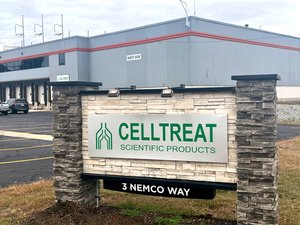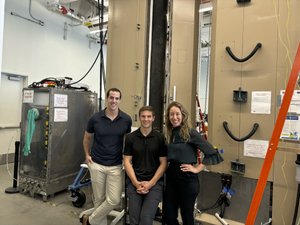
If American economist Robert Gordon is to be believed, the golden age of growth and transformation is behind us.
The professor of the social sciences at Northwestern University, who is best known for his work on productivity and growth, argues that the world is not changing faster than ever — but rather too little.
Back in 2012, Gordon argued the third industrial revolution hasn't transformed the way we live and work nearly as much as the inventions of the first and second industrial revolutions that replaced horse carts with trucks and fire-cooking with gas stoves. Flash forward to 2020, and MIT Technology Review is sharing what it thinks are the big breakthroughs.
The list below, the publication writes, avoids "one-off tricks" and "new gadgets."
Unhackable Internet
"The technology relies on a quantum behavior of atomic particles called entanglement. Entangled photons can’t be covertly read without disrupting their content."
Hyper-personalized Medicine
"Where researchers would have once seen obstacles and said 'I’m sorry,' they now see solutions in DNA and think maybe they can help."
Digital Money
"China is poised to become the first major economy to issue a digital version of its money, which it intends as a replacement for physical cash."
Anti-aging Drugs
"The drugs are called senolytics—they work by removing certain cells that accumulate as we age. Known as “senescent” cells, they can create low-level inflammation that suppresses normal mechanisms of cellular repair and creates a toxic environment for neighboring cells."
AI-discovered Molecules
"Now machine-learning tools can explore large databases of existing molecules and their properties, using the information to generate new possibilities. This could make it faster and cheaper to discover new drug candidates."
Satellite Mega-Constellations
"We could soon see thousands of satellites working in tandem to supply internet access for even the poorest and most remote populations on the planet."
"These systems can blanket the globe with high-speed internet—or turn Earth’s orbit into a junk-ridden minefield."
Quantum Supremacy
"In theory, they could tackle certain classes of problems that even the most powerful classical supercomputer imaginable would take millennia to solve, like breaking today’s cryptographic codes or simulating the precise behavior of molecules to help discover new drugs and materials."
Tiny AI
"An emerging generation of specialized AI chips promises to pack more computational power into tighter physical spaces, and train and run AI on far less energy."
"But as the benefits of AI become distributed, so will all its challenges. It could become harder to combat surveillance systems or deepfake videos, for example, and discriminatory algorithms could also proliferate."
Differential Privacy
"Differential privacy is a mathematical technique that makes this process rigorous by measuring how much privacy increases when noise is added. The method is already used by Apple and Facebook to collect aggregate data without identifying particular users."
Climate Change Attribution
"Earlier this decade, scientists were reluctant to link any specific event to climate change. But many more extreme-weather attribution studies have been done in the last few years, and rapidly improving tools and techniques have made them more reliable and convincing."








